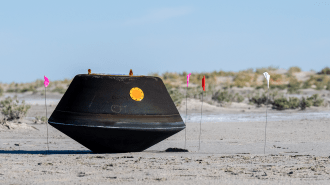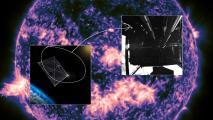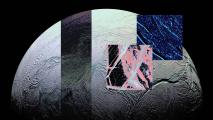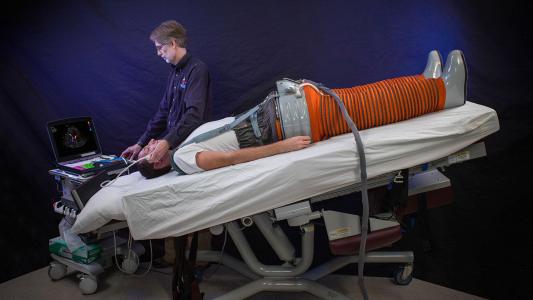NASA has retrieved its first asteroid sample
NASA has just retrieved America’s first asteroid sample, bringing to an end a mission that began more than seven years ago — and signaling the start of a new chapter in astronomy.
Picture perfect: Asteroids are remnants of the material from which our solar system formed 4.6 billion years ago. There are more than 1.3 million of them in the solar system, and in September 2016, NASA launched the “OSIRIS-REx” mission to retrieve a sample from an asteroid named Bennu.
In October 2020, the spacecraft successfully touched down on the asteroid to collect its sample, and after a three-year journey back to Earth, the capsule carrying the precious cargo landed as planned in a Utah desert on September 24.
“Congratulations to the OSIRIS-REx team on a picture-perfect mission — the first American asteroid sample return in history,” said NASA Administrator Bill Nelson.
Why Bennu? Out of all the asteroids it could target, Bennu was of particular interest to NASA because it’s an estimated 4.5 billion years old — that means a sample of the space rock could potentially yield new insights into what the solar system was like when it was just a baby.
Logistics also factored into the decision. Bennu had the ideal size and orbit for a sample retrieval mission, and unlike most asteroids, which never come anywhere near Earth, it swings into our neighborhood every six years.
Because there is a (small) chance that Bennu might one day impact Earth, having a sample of it could help us plan planetary defense missions, too — all the more reason to look it over carefully.
The next steps: After determining that it was safe to approach the OSIRIS-REx capsule, NASA used a helicopter to transport it to a nearby clean room. It was then connected to a device that sent a steady stream of nitrogen into the sample container to protect it from contamination.
On September 25, NASA used an Air Force plane to transport the capsule to Johnson Space Center in Houston. Scientists will now spend weeks disassembling the canister containing the asteroid sample, cataloging and storing every bit of the estimated 8.8 ounces of rock and dust they find in it.
“We now have the unprecedented opportunity to … delve deeper into the secrets of our solar system.”
Dante Lauretta
These will eventually be distributed to scientists worldwide, but NASA plans to immediately analyze some of the dust from the container. The results of that analysis — along with the first images of the asteroid sample — will be shared during a live broadcast on October 11.
“Today marks an extraordinary milestone not just for the OSIRIS-REx team but for science as a whole,” said Dante Lauretta, principal investigator for OSIRIS-REx at the University of Arizona.
“But let’s not forget — while this may feel like the end of an incredible chapter, it’s truly just the beginning of another,” he added. “We now have the unprecedented opportunity to analyze these samples and delve deeper into the secrets of our solar system.”
We’d love to hear from you! If you have a comment about this article or if you have a tip for a future Freethink story, please email us at [email protected].




